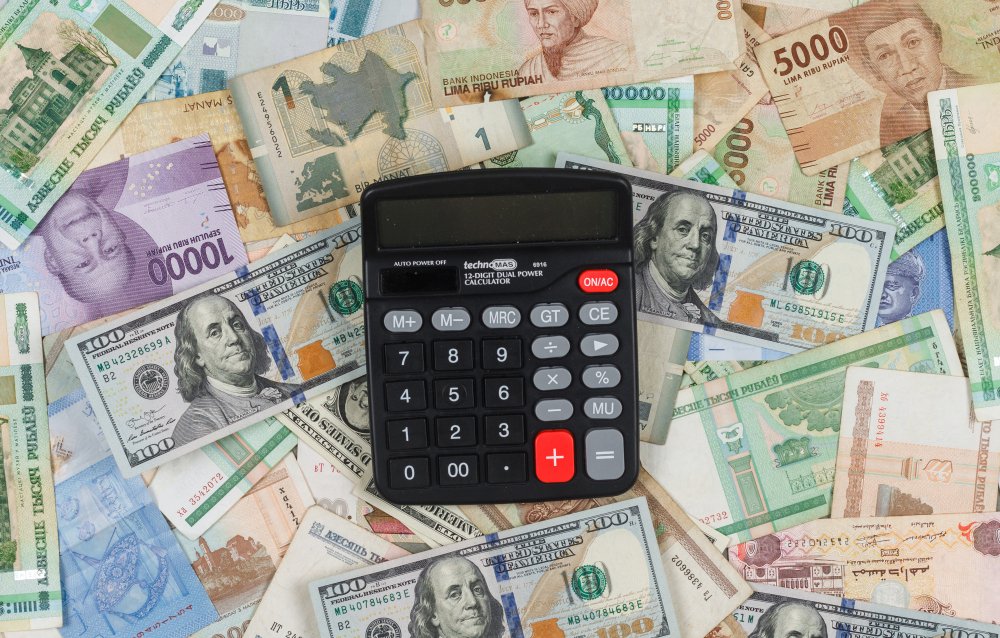Currency Culture Shock: When Naira Meets Pounds
- Home
- Blog

By Omolola Olakunri
There’s something peculiar that happens to me whenever I vacation outside of Nigeria. It’s as if my mind becomes a calculator, constantly converting prices of everything I see from pounds and dollars to naira.
This mental math exercise often leaves me rooted to the spot in shock, my brain struggling to wrap itself around the stark contrast in costs between the two countries, Nigeria and my destination. It’s a carry-over of the way of life in Nigeria, where prices are often negotiable and the cost of living is vastly different.
On this trip, my sons, wise beyond their years, spoke on this quirk of mine. They jokingly advised me to ditch the conversion habit and simply enjoy my vacation. “Mum, don’t go around converting prices,” they said. “Just enjoy your vacation and have fun.”
Easy for them to say, I thought. After all, they’ve had more time to adjust to life abroad.
My first evening back with my children was nothing short of beautiful. We reunited, and I was overcome with emotion, tears welling up in my eyes. As we caught up on each other’s lives, they ordered takeout from my favorite Asian restaurant. The meal was exquisite, ticking all my gourmet boxes. But as I savored each bite, my mind couldn’t help but wander to the price tag attached to this culinary delight.
And that’s when it hit me – the mental math exercise that had become second nature to me. I started calculating the cost of the meal in naira, and my mind reeled in shock. How could a simple meal cost so much.
It was then that I realized just how ingrained this habit of mine was. Even in the midst of joy and celebration, my mind couldn’t help but think about the cost. It’s a quirk I’m still working on, but one that I’m determined to overcome.
As I navigated the city, I couldn’t help but notice the stark contrast in prices.
How a nanny’s monthly wage of 800 pounds is the equivalent of 1.6 million naira a month..
How a latte of 4.50 seemed like a luxury, compared to a weeks wages back home
How a £250 dress was like a month’s worth of groceries. And the realisation that even a garbage collector pays mortgage. My mind struggled to adjust to the new price paradigm.

But as the days went by, I began to adapt. I started to see prices in pounds, rather than constantly converting to naira. I learned to appreciate the value of the experiences I was having, rather than just the cost. I realized that the benefits of adapting to the price changes were twofold. Not only did I get to enjoy my holiday without the constant mental math, but I also gained a new perspective on the value of money.
There are benefits to adapting to the price changes. One gets to enjoy the holiday and enjoy the moment. Fulfilling bucket lists and expectations. However, don’t think I will ever be that inured from reality that my mind does not gently nudge me to note my expenses. It’s called accountability.
As I reflect on my experience, I realize that it’s not just about the prices; it’s about the cultural context. In Nigeria, prices are often negotiable, and haggling is an art. Here, prices are fixed, and there’s less room for negotiation. It’s a different mindset, one that values transparency and fairness.
In the end, my experience was a valuable lesson in adaptability and perspective. I learned to appreciate the differences between Nigeria and the UK, and to see the world through a new lens. And although I’ll always be mindful of my expenses, I’m grateful for the opportunity to experience life in a new way.
Here are some tips that worked for me. Here’s hoping you give them a try too.
Give yourself time to adjust. It takes a while to get used to a new currency and pricing system. Be patient with yourself, and don’t stress too much about the conversion.
Focus on experiences, not just costs. Instead of constantly converting prices, focus on the experiences you’re having and the value they bring to your life.
Immerse yourself in the local culture. Try to understand the local pricing system and cultural context. This will help you navigate prices with more ease and appreciation.
Enjoyy..
About Us
Write Affairs was created in June 2024 as an extension of Quintessential Strategies Limited (QSL) to meet the growing demand for expert writing services.

Dear Auntie Lola,
Every time I read your stories, I feel like I’ve stepped right into them😀 walking beside you, seeing through your eyes, feeling every emotion you’ve woven into your words. Currency Culture Shock was no different. You didn’t just write about numbers and exchange rates, you told a story that lives in the heart of anyone who’s ever packed a bag, left Nigeria, and suddenly found themselves mentally converting every price tag in sight.
I smiled through it all because it felt so familiar. I find myself in this same situation every time I travel. That instinctive naira-to-foreign-currency math that kicks in, even when all I want to do is enjoy the moment. Sometimes, it makes me appreciate Nigeria more and the fact that with all its challenges, the basic needs often come cheaper, and people with little can still somehow make life work. Other times, I sit with the sobering reality of how weak the naira has become. It’s a rollercoaster of emotions, one your story captured so effortlessly.
What I love most about your writing is how it always manages to reflect the deeper truths beneath everyday experiences. You reminded me that it’s okay to be shocked, okay to feel the tension between enjoyment and accountability — but also that it’s possible to gently loosen that grip and live in the moment too.
Thank you for helping me see myself again and for telling our stories in ways that are both beautiful and honest. You always make us live inside your stories, and that’s such a gift.
With love,
Aanuoluwapo